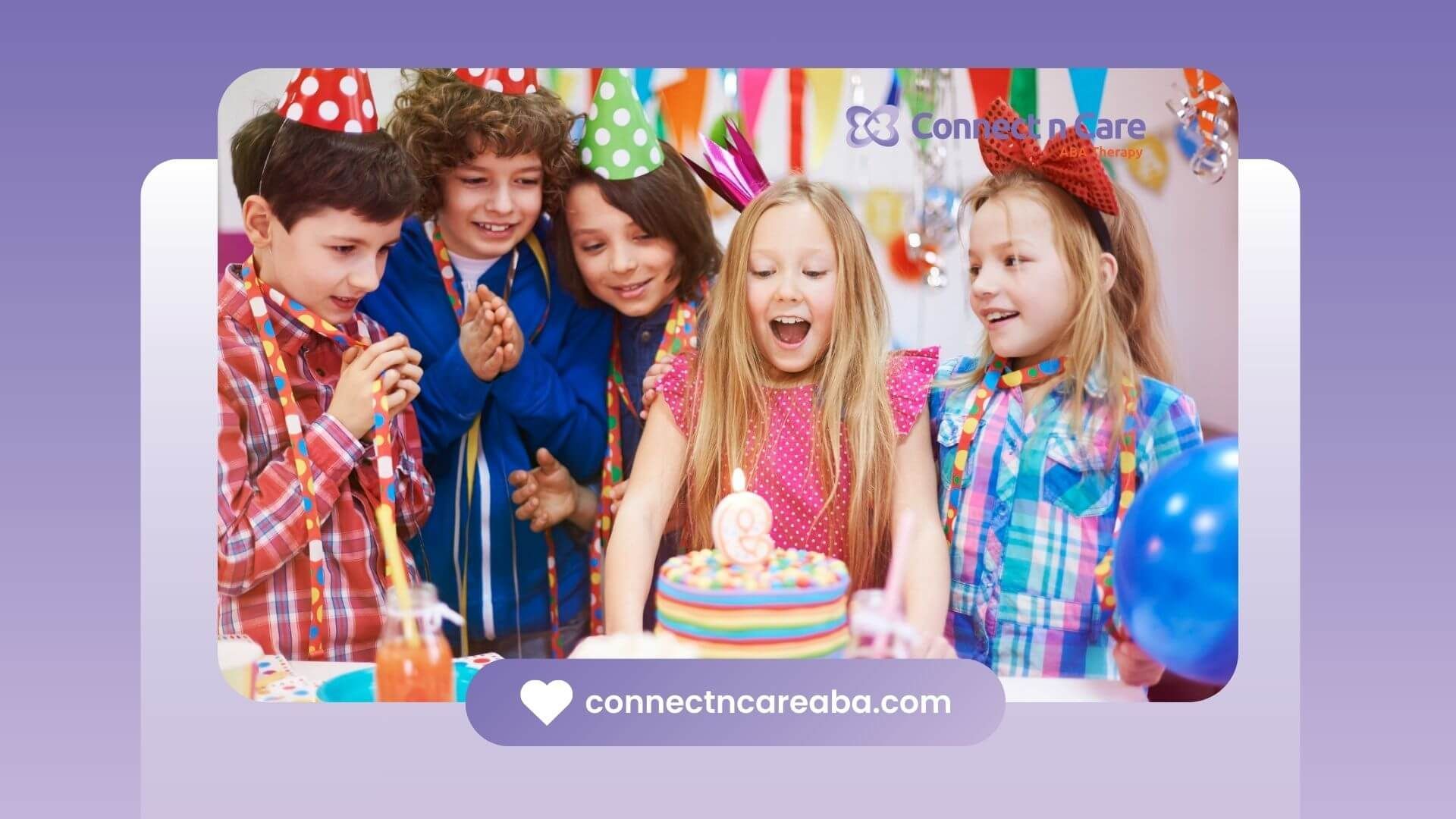RBT career development helps Registered Behavior Technicians build essential skills and access advanced roles. This process can transform professional trajectories and elevate the quality of behavior-analytic services delivered to children with autism and related conditions. Parents, educators, therapists, and families in North Carolina recognize the value of well-defined advancement paths when selecting or supporting RBTs. This article provides a clear roadmap, covering certification steps, specialization opportunities, continuous learning resources, and pathways to higher-level positions.
Readers will gain insights on meeting certification requirements, pursuing specializations, engaging in ongoing education, and measuring career impact.
RBT Career Development Overview
Career growth for
Registered Behavior Technicians centers on structured training, hands-on supervision, and ongoing skill building. By following established requirements and exploring diverse learning options, RBTs can enhance their expertise and broaden their scope of practice.
Role Of Registered Behavior Technicians
Registered Behavior Technicians assist in delivering Applied Behavior Analysis (ABA) services under close supervision. Typical responsibilities include:
- Implementing behavior intervention plans
- Collecting and graphing session data
- Coaching caregivers on intervention strategies
- Supporting social and communication skill development
These tasks ensure that evidence-based practices reach individuals with autism in homes, schools, clinics, and community settings.
Importance For Stakeholders
Career development for RBTs yields benefits across multiple groups:
- Individuals With Autism: Consistent, skilled support leads to meaningful progress.
- Families And Caregivers: Clear advancement paths foster trust and continuity of care.
- Educators And Schools: Skilled RBTs integrate seamlessly into classroom teams.
- ABA Professionals: Career ladders help retain talent and reduce turnover.
High workforce growth projected at 21 percent for behavioral therapists—underscores the demand for qualified RBTs.
Meeting Certification Requirements
What does it take to become a Registered Behavior Technician? The certification process involves four key steps, each designed to confirm readiness and competence.
Age And Education Prerequisites
Candidates must meet these basic criteria:
- Be at least 18 years old
- Hold a high school diploma or GED equivalent
- Pass a criminal background check
These prerequisites ensure that RBT applicants possess foundational maturity and integrity.
40-Hour Training Program
Prospective RBTs complete a 40-hour training covering core ABA concepts and best practices:
- Fundamentals of behavior analysis
- Data collection and measurement methods
- Ethical considerations and professional conduct
- Behavior reduction and skill acquisition strategies
Training may be delivered online or in person by approved instructors.
Competency Assessment
After training, candidates undergo a hands-on evaluation to demonstrate practical competence. Under the supervision of a BCBA (Board Certified Behavior Analyst) or other qualified professional, they must:
- Implement discrete trial training
- Conduct continuous measurement and graphing
- Apply skill acquisition procedures
- Use behavior reduction techniques
Successful completion verifies readiness to apply ABA procedures in real-world settings.
RBT Examination
The final step is an 85-item multiple-choice exam administered by a BACB-approved testing vendor. Questions assess:
- ABA principles and terminology
- Ethical guidelines for service delivery
- Data collection and analysis methods
- Practical applications of behavior-analytic procedures
Passing the exam awards the RBT credential, valid for one year and renewable annually through supervised practice and continuing education.
Exploring Specialization Options
Once certified, RBTs can deepen their expertise through credentialing and focused training areas, enhancing their value in specific service contexts.
BACB Associate And Board Certifications
Many RBTs aim for advanced credentials with the Behavior Analyst Certification Board, such as:
- Board Certified Assistant Behavior Analyst (BCaBA)
- Board Certified Behavior Analyst (BCBA)
These certifications require a bachelor’s or master’s degree, supervised fieldwork, and passing rigorous exams. Earning a BCaBA or BCBA expands clinical responsibilities and typically increases earning potential.
Specialty Area Credentials
Beyond formal BACB certifications, RBTs may pursue specialized endorsements or micro-credentials in areas like:
- Verbal Behavior Therapy
- Feeding and Nutrition Interventions
- Early Intensive Behavioral Intervention (EIBI)
Such credentials are offered by professional associations or university extension programs and signal advanced skills to employers and families.
Engaging Continued Education
Ongoing learning keeps RBTs current with evolving best practices and boosts their effectiveness in diverse settings.
Workshops And Webinars
Short-term events deliver targeted skill building, covering topics such as:
- Autism assessment updates
- Data-driven decision-making
- Crisis prevention and intervention
- Social skills group facilitation
Research shows that workshops and webinars enhance technician performance and confidence.
Professional Development Resources
Key resources for sustained growth include:
- RBT Handbook, covering practice guidelines and code updates
- Online certificate courses with included exam vouchers.
- Peer-reviewed journals, such as the Journal of Applied Behavior Analysis
- Regional ABA conferences and local support groups
Leveraging these materials ensures that RBTs stay informed about ethical updates, technology tools, and emerging intervention strategies.
Advancing To Higher Roles
With solid foundations and specialized skills, RBTs can transition into leadership positions or alternative careers within the ABA field.
Board Certified Behavior Analyst
Achieving BCBA status represents a major career milestone. A comparison of average incomes highlights the financial impact:
| Certification | Average Annual Salary |
|---|---|
| RBT | $36,218 – $66,000 range, median around $54,000 |
| BCBA | Approximately $68,554 |
BCBAs design behavior intervention plans, supervise RBTs, and consult with families and schools, gaining broader influence and autonomy.
Alternative Career Paths
RBTs may also explore roles that leverage their hands-on experience, such as:
- Behavior Consultant or Intervention Specialist
- Program Coordinator for community-based ABA services
- Special Education Paraprofessional or Classroom Assistant
- Behavior Technician Training Instructor
These positions offer varied responsibilities and can align with personal interests in education, healthcare, or nonprofit work.
Measuring Career Impact
Advancement in behavior-analytic careers not only benefits technicians but also drives positive outcomes for individuals, families, and communities.
Outcomes For Individuals With Autism
Higher-skilled RBTs deliver more consistent, evidence-based interventions, resulting in:
- Accelerated skill acquisition
- Reduced challenging behaviors
- Improved communication and social engagement
Over time, these gains translate to greater independence and quality of life.
Benefits For Families And Educators
Well-trained RBTs foster:
- Trust through reliable service delivery
- Collaboration on goal-setting and progress monitoring
- Seamless integration of ABA strategies in home and school environments
Families and schools alike experience reduced stress when support staff demonstrate expertise and compassion.
Community And Professional Effects
Strong career pathways support the ABA workforce by:
- Improving job satisfaction and retention rates
- Expanding service capacity in underserved areas
- Elevating professional standards through mentorship and supervision
As RBTs advance, they contribute to a more skilled, stable community of practitioners.
Conclusion
RBT career development transforms lives by equipping technicians with the tools to deliver high-quality services, by supporting families and educators, and by strengthening the broader ABA field. With a clear roadmap from initial certification steps through advanced credentials and continuous learning, stakeholders can champion pathways that benefit every participant in the behavior-analytic process.
Whether pursuing the next credential, attending a workshop, or exploring a leadership role, Registered Behavior Technicians and their supporters gain confidence knowing that each step yields real impact. Communities thrive when RBTs pursue growth, and every advancement translates to better outcomes for individuals with autism and their families.
At Connect n Care ABA, we believe in empowering every RBT to grow, learn, and lead with confidence. Our mission goes beyond providing ABA therapy in North Carolina; it is to build career pathways that strengthen the entire ABA community. Whether you’re just starting as a Registered Behavior Technician or aiming to advance toward a BCBA role, our team provides hands-on supervision, mentorship, and professional development designed to help you thrive.
Ready to take your next step in ABA therapy?
Contact us today!
Frequently Asked Questions
How can RBTs advance their careers in ABA therapy?
RBTs can progress by gaining experience, pursuing BCaBA or BCBA certification, attending professional workshops, and working under qualified supervisors for mentorship.
How long does it take to become a BCBA after being an RBT?
It typically takes 2–3 years to earn the required graduate degree, fieldwork hours, and pass the BCBA exam, depending on your chosen program and pace.
Are there RBT job opportunities in North Carolina?
Yes, demand for ABA professionals in North Carolina continues to grow, especially in school-based and in-home settings, offering excellent job stability and career advancement opportunities.
SOURCE:
https://www.bacb.com/rbt/
https://beacna.com/rbt-career-path/
https://careertraining.georgiasouthern.edu/training-programs/registered-behavior-technician-training-voucher-included/
https://www.reddit.com/r/ABA/comments/h0cgxm/careers_after_being_an_rbt/
https://www.quora.com/What-is-the-definition-of-an-RBT-Is-being-an-RBT-hard-work-and-worth-it









